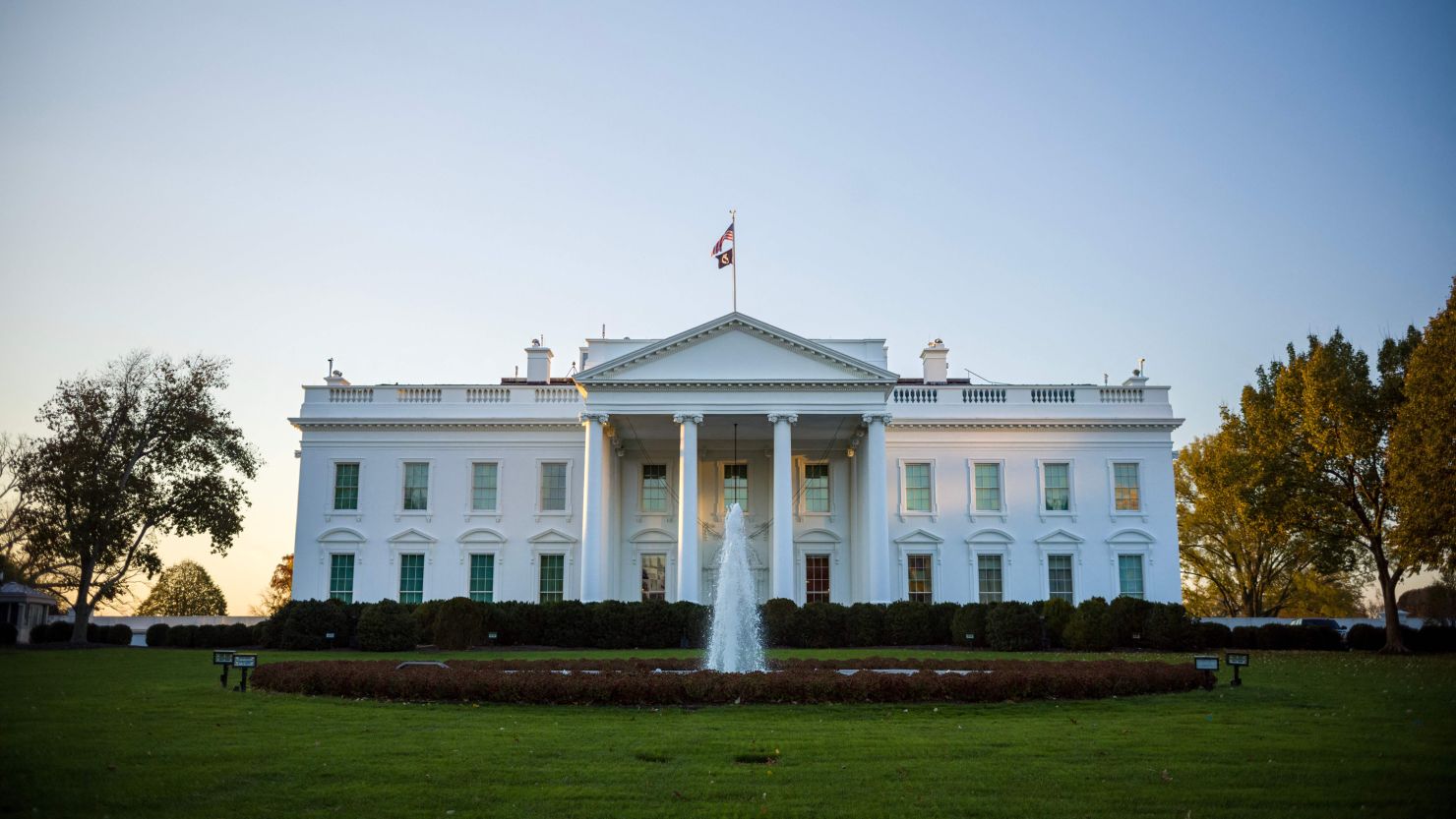Editor’s Note: John Avlon is a CNN senior political analyst and anchor. He is the author of “Lincoln and the Fight for Peace.” The views expressed in this commentary are his own. View more opinion at CNN.
In 1980, presidential candidate Ronald Reagan famously asked a televised debate audience, “are you better off today than you were four years ago?”
It was a hammer blow to then-President Jimmy Carter’s reelection hopes. Now, with the 2024 presidential election in sight, it remains the essential question.
Are you better off than you were at the end of former President Donald Trump’s term? Even more to the point, is America better off now than when President Joe Biden took office?
Think back three years, to January of 2021. The US was suffering what was then the deadliest month of the Covid-19 pandemic, which would eventually claim more than 1.1 million American lives — far above the per capita average of the developed world. The unemployment rate was 6.7% after spiking to nearly 15% at the start of the pandemic — a number salvaged by trillions of dollars in bipartisan stimulus spending that increased the deficit by 200% year-over-year.
Most indelibly, we had a president who — for the first time in American history — conspired to overturn an election on the basis of a lie to stay in power, contrary to the constitution and the tradition of a peaceful transfer of power, resulting in an attack on the US Capitol by his supporters.
Yes, by that essential measure, America is in far better shape than we were three years ago.
But what about the economy? Partisanship has become so pervasive that it distorts perceptions of otherwise straightforward data. One TikTok trend even proclaims that we’re in a silent economic depression, absent any historic perspective.
Here’s the real deal: the recession widely predicted by economists, analysts and executives in 2023 never materialized.
Instead, the American economy is a world leader — recently described by The Economist as “a marvel to behold” with inflation declining faster than our allies and heading toward the vaunted soft landing that seemed mythical to many observers.
On Wall Street, the stock market is closing out the year near record levels (so much for Trump’s prediction of a depression). More importantly, Main Street is flourishing.
Under Biden, employers have created a modern record of 14 million jobs in three years — averaging more than 400,000 per month. Contrast that with the 176,000 jobs per month employers created under President Trump during his first three months in office, before the pandemic led to a loss of more than 20 million jobs. This is not just a rebound: New jobs have exceeded pre-pandemic levels.
The US unemployment rate has been below 4% for two years — that’s the first time it’s happened since the 1960s. Black and Hispanic unemployment rates have seen historic lows. Hourly wage growth has outpaced inflation this year, and union workers saw major raises, benefiting workers at the lower end of the income scale disproportionately and leading the Washington Post to declare, “blue collar workers won big in 2023.”
The American economy as a whole has been growing at rapid pace, hitting a stunning 5.2% in the third quarter of 2023. Trump saw an average annual GDP growth of 2.5% during his first three years — basically in line with the 2.3% annualized growth he inherited under President Barack Obama during his last three years in office. That’s not all: consumer confidence is strong as we head into 2024.
Facts matter. But politics is often a matter of perception. So why do polls show that Biden does not get credit for this surging economy?
The presence of inflation and higher interest rates is a big reason for that disconnect. Declines in these day-to-day frustrations are a lagging indicator, despite inflation leveling off. In the recent past, the “modern monetary theory” movement on the far-left took the practical and political benefits of low interest rates and low inflation for granted. That should not happen again.
There’s also understandable frustration at the costs of the migrant crisis extending from the southern border to northern cities. Democrats shouldn’t be in denial about this issue either.
It’s also true that the full benefit of Biden’s signature legislative achievements thus far — the bipartisan infrastructure bill and the CHIPs act to re-shore American technological manufacturing — haven’t been fully felt yet. But along with improved union benefits, they could do more to revive the American middle class after decades of being squeezed and jobs being sent overseas. To date, companies have committed more than $200 billion to build new American manufacturing plants and factories are thriving, particularly in the red states of the South and Mountain West.
Finally, Trump excelled at salesmanship; he was and is a hype man, a master marketer often unconstrained by facts. During the Trump administration, economic news was a rare bright spot that non-partisan journalists could acknowledge — and so acknowledge it they often did. Interestingly, and counterintuitively, a Pew Research Center analysis of press coverage from the first 100 days under Biden and Trump found that Biden’s coverage was slightly more negative.
While the economy often does better under Democrats (a point once acknowledged by Trump in a 2004 CNN interview), Republicans generally seem to be getting credit around the C-suite — despite the booming stock market and the fact that no individual tax rates have been raised under Biden. Biden and his team have not come up with sticky soundbites and statistics to help supporters make their case – and if people don’t toot their own horns, nobody hears the music.
When Reagan asked that fateful question, the US unemployment rate was double what it is today, interest rates were more than triple at 11.5%, and America was in the middle of a double-dip recession. Carter’s other virtues — his reputation for personal decency, fiscal discipline and far-sighted investment in alternative energy didn’t sway voters. Moreover, America’s reputation abroad seemed in tatters, symbolized by American hostages held in Iran.
Get Our Free Weekly Newsletter
- Sign up for CNN Opinion’s newsletter
- Join us on Twitter and Facebook
In contrast, respect for American leadership overseas spiked with the transition from Trump to Biden and as Peter Wehner, once a senior White House aide to Reagan and both presidents Bush, recently wrote in the Atlantic: “Biden has asked for and received increases in defense spending, which is at a record level. Under Biden, domestic oil production is at an all-time high. He’s been a fierce advocate for Ukraine in its war against Russia. He strengthened NATO and played an essential role in adding Finland and Sweden to it… A person who was thought to be a transitional president is turning out to be a consequential one.”
Perspective is the thing we have least of in our politics, but facts still matter. Lord knows our country faces serious challenges and there are families still struggling, but don’t believe the partisan hype on the misinformation machine that is too often social media. Look at the data and ask yourself whether Americans overall —and America itself — are better off now under Biden than at the end of the Trump presidency? The answer is yes.







